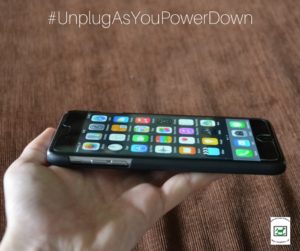 This year, many children received cell phones, iPads and computers for Christmas. Did you know that exposure to the screens from electronic devices can actually interfere with your sleep?
This year, many children received cell phones, iPads and computers for Christmas. Did you know that exposure to the screens from electronic devices can actually interfere with your sleep?
Devices such as televisions, computers, tablets and cell phones all produce “blue light”. The Blue light emitted by these devices decreases the body’s production of melatonin, which is one of the main hormones involved in sleep. A decrease in melatonin may cause your child to have difficulty falling asleep and staying asleep.
In addition to decreasing melatonin production, the use of electronic devices at night robs your child of the opportunity to settle down and to get to sleep on schedule. Studies show that children who have a television in their room are more likely to be poor sleepers. Watching television in bed also teaches your child’s brain that it is OK to do activities in bed other than sleeping. This can also impact your child’s ability to get to sleep easily and to have difficulty getting back to sleep if they wake up during the night.
Recommendations are to eliminate the use of electronic devices 1-2 hours before bed in order to help your child’s melatonin levels rise in preparation for sleep. To help your child to decrease electronic use, we suggest the following:
- Do not put a television in your child’s bedroom. However, if the TV is already there and cannot be removed, assure your child does not watch TV on or in their bed and confiscate the remote control at the appropriate time.
- Encourage your child to engage in relaxing activities to help them to fill the space between their electronic black out and bedtime. Reading paper books, engaging in family time, performing crafts, or listening to calming music are all excellent ideas.
- Set a good example for your child by turning off your own electronic devices in the evenings.
Helping your child unplug in the evenings is one of the easiest, and most effective ways to encourage good sleep habits.

